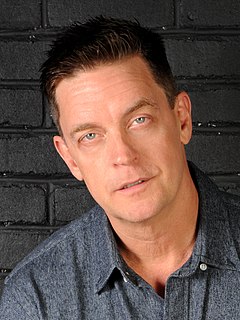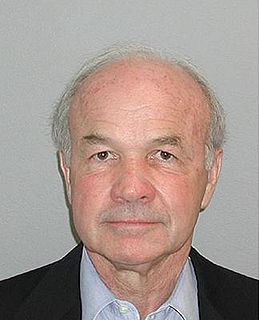A Quote by Reshma Saujani
I've chosen opportunities where I might fail rather than live in the shadow of my own potential.
Related Quotes
Committees are, by nature, timid. They are based on the premise of safety in numbers; content to survive inconspicuously, rather than take risks and move independently ahead. Without independence, without the freedom for new ideas to be tried, to fail, and to ultimately succeed, the world will not move ahead, but rather live in fear of it's own potential
If we fail to realize our full potential as human beings, we live more on an animalistic level. This is fine for dogs, cats, and chimpanzees but doesn't work quite so well for women and men. Without the capacity to freely shape our own lives, much as a sculptor might carve stone, we inevitably slip into negativity and depression.
The wave of punitiveness that washed over the United States with the rise of the drug war and the get tough movement really flooded our schools. Schools, caught up in this maelstrom, began viewing children as criminals or suspects, rather than as young people with an enormous amount of potential struggling in their own ways and their own difficult context to make it and hopefully thrive. We began viewing the youth in schools as potential violators rather than as children needing our guidance.
Don’t be afraid to fail. Get out there and experiment and learn and fail and get a rate based on the experiences you have. Go for it and when you go for it you’ll learn what you’re capable of, what the potential is, where the opportunities are, but you can’t be afraid to fail because that’s when you learn.
Jung first gave us the term ‘shadow’ to refer to those parts of our personality that have been rejected out of fear, ignorance, shame, or lack of love. His basic notion of the shadow was simple: ‘the shadow is the person you would rather not be.’ He believed that integrating the shadow would have a profound impact, enabling us to rediscover a deeper source of our own spiritual life. ‘To do this,’ Jung said, ‘we are obliged to struggle with evil, confront the shadow, to integrate the devil. There is no other choice.’
Sometimes, when we're terrified of embracing our true calling, we'll pursue a shadow calling instead. That shadow career is a metaphor for our real career. Its shape is similar, its contours feel tantalizingly the same. But a shadow career entails no real risk. If we fail at a shadow career, the consequences are meaningless to us. Are you pursuing a shadow career?
I always took my role as a leader, and certainly chairman and CEO of a major company very seriously as to our employees and trying to create opportunities for them and create opportunities where they could even, as I said many times, could realize their God-given potential and maybe realize more potential than even they realize they had.
One of the problems with trying to help underdogs, especially with government programs, is that they and everyone else start to think of them as underdogs, focusing on their problems rather than their opportunities. Thinking of themselves as underdogs can also dissipate their energies in resentments of others, rather than spending that energy making the most of their own possibilities.




































